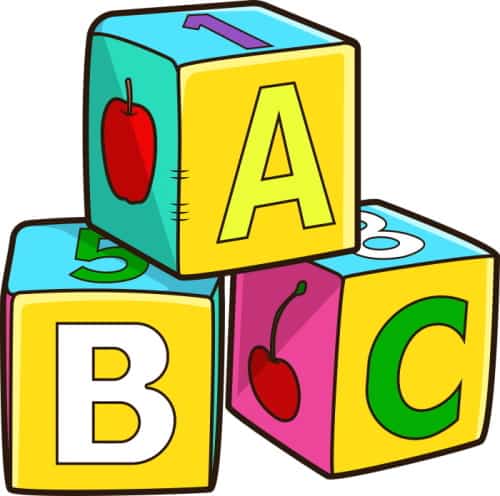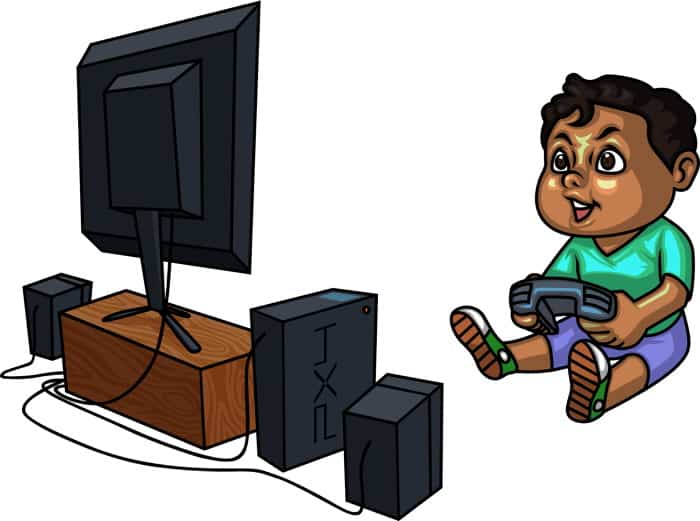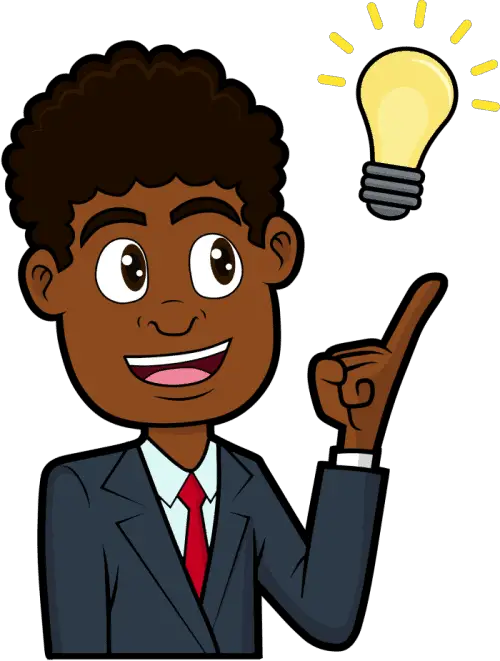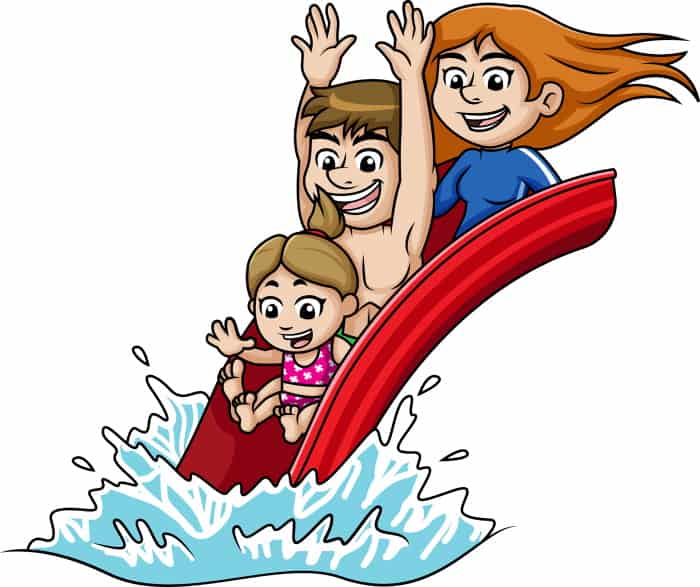
Many people hope to learn a language one day, but few actually follow through to fluency. It is important that an aspiring polyglot not get overwhelmed by looking at a language in its entirety. There is a far more simple solution.
When learning a new language start with the most commonly used words, the alphabet, and pronunciation. The first 1000 words will constitute 90% of the target language. Adding the alphabet and its pronunciation will enable the student to speak from the start.
Learning a language does not have to be a daunting task when cut down to practical size. A fluent English speaker certainly does not know every word in the English lexicon. Once a language student learns and understands what words are the most used, they need to strategize and motivate properly. Read on to find out how!
Contents
- 1 Study the Most Common Words First Before Specific Subject Words
- 2 Master The Alphabet and It’s Pronunciation In The Beginning
- 3 Learn From Interests Before Tackling More Mundane Tasks
- 4 Have Conversations in the Target Language From Day One
- 5 Use Flashcards For Beginning Vocabulary
- 6 Set Goals Before Learning a Language
- 7 Full Immersion Is the Quickest Way to Learn
- 8 Final Talking Point on What to Learn First When Learning A Language
Study the Most Common Words First Before Specific Subject Words
Learning the most commonly used words of a target language will be a weight off the aspiring polyglot’s shoulders. Learning a new language can be overwhelming enough. There is no need for the language student to place undue stress on learning every word in the target language’s dictionary. Segmenting the language improves efficiency.
The biggest benefit of this method will allow for a language learner to invest time where it matters the most. This will prevent burnout, which can derail people’s hopes of becoming bilingual. An aspiring polyglot needs to give themself every reason to succeed. By focusing on the common words, a student has a better chance at success.
- Look up the 1,000 most published words in the target language
- Look up the 1,000 most published words in the native language for comparison
- Use an app or program to discover the most used words in one’s self
These three tips are great places for a language student to begin the journey to becoming bilingual. A language student should not overlook the words that they utilize in their everyday speech when researching their target language. In most cases, they will see that there is a significant amount of overlap between the two languages.
The first step to fluency will begin with becoming comfortable with the most commonly used words of the target language. A student that becomes comfortable with these high-frequency words can then focus on the more specialized words that compose the remainder of the target language. The studying is never going to be done entirely!
Master The Alphabet and It’s Pronunciation In The Beginning

It is an easier task than most to start with the alphabet and many see it as too simple. They want to jump into more meaty subjects like common words and phrases. Yet, I would say that the pronunciation of these sounds and how to write them are a valuable catalyst to learning to do everything else in the language.
Learning The Alphabet Is Easy: Do It Early
Many languages will have a similar alphabet to English or other native tongues. If your target language doesn’t have a lot of similarities to your native one’s alphabet, no worries. This is usually an easy and sometimes fun goal in most languages.
Let’s assume here that in all these situations your native language is English. Since you are reading this in English (unless you have used a translation software) this is more than likely the case.
Take German for instance. It has only a couple of letters that are different from the English alphabet. You will find that learning the pronunciation may take a bit of effort, but with German there are some unique sounds that are fun to get used to. You will be imitating a German accent while speaking English in no time.
How about Korean. One of the first things to learn in a language like Korean advocated by most language teachers and polyglots is the alphabet. One of the main reasons for this is pronunciation that helps speak the language. But the other main reason is that it literally takes an hour or so to do. It is completely phonetic and notoriously simple to grasp.
Not only can learning the alphabet and pronunciation of a language first help with all of the other language learning goals, it is one of the easier accomplishments. This gives the learner added motivation to press forward and master the language.
Pronunciation Is Foundational To Speaking A Language
If you don’t learn to pronounce the language properly in the beginning, you will have a hard time finding speaking partners that will understand you. They may even take it as an insult that you haven’t taken the time to learn to speak it properly.
An accent is fine, but improperly pronouncing a language isn’t. You don’t have to sound like a native in how you say things, you just have to be understood by one in a normal conversation.

Learning how to form the sounds of a language should happen from the very start of language learning. This makes speaking so much easier and knocks down a rather easy hurdle right from the start that could slow down the entire process if not addressed early on.
Learn From Interests Before Tackling More Mundane Tasks
A love for the culture of a student’s target language is not enough to ensure success, and sometimes, raw memorization is dull. It is recommended that a student begin learning a language by developing their language skills from pre-existing interests and hobbies.

While not all common words will be involved, you can fit them in around the subject you are interested in. After starting this way, it will be easier in later stages to employ the same tactic.
A language student’s particular interest in a less common or more specialized topic can fuel their learning with a much-needed boost in motivation and renewed curiosity. Some special interests or hobbies that can prove useful for learning the most common words are:
- Watching or playing sports in the target language
- Reading a book or publication in its native tongue
- Watching a video on sewing, cooking, or another interest in the target language
This can be exceptionally beneficial when discovering the target language’s most commonly used words since many are used during these things. For the aspiring polyglot that finds history fascinating, they should start learning a language by looking to historical texts, audio, and videos in the target language to become familiar with all of the nuances of the language.
If the language student is particularly knowledgeable about the process in which something is done or created, it will be very interesting to see how the target language expresses the same information that the language student knows by heart.
For the student starting out, this could be utilized by watching a video in English and then in the target language if available.
Listen to Music From The First Day
So many people turn to music to broaden their horizons and learn a new language. This is particularly useful for expanding and reinforcing vocabulary, especially for new students. After all, the most common words will be used often in music.
Not only is this a great way to expose yourself to the common words right from the start, but you will also do so in an enjoyable, motivating way.
When the language student listens to and learns a song in the target language that they have already committed to memory in English, they will gain additional insights into the mechanics of the target language itself. Before long, the target language’s version will be stuck in the language student’s head just as much as the English version.
Many people can remember song lyrics better than anything else. This unique medium can be a huge benefit to language students that pick up songs and their lyrics rather quickly.
Newer language students that are struggling to memorize the 1,000 most commonly used words of the target language should employ the use of music to change things up.
In fact, it not only serves as a great way to reinforce vocabulary, but it is a passive method. A beginning language student should be listening to a song that is sung in their target language while they exercise, do chores, or commute to and from work. This allows the brain to rest actively while it is exposed to all of the sounds and nuances of the target language.
Listening to the music of the target language and culture should definitely be on the list of first things to do when starting a new language.
Studying A Hobby Can Inspire New Language Learners
If a student has had a long day and does not feel the motivation to continue any longer, then they can take a break by looking into another interest for a change of pace. To make this rest an active rest, the language student should utilize materials that are written or recorded in the target language so that the brain can begin to learn passively.
For starters, if you love to cook, then watching a video and preparing a recipe that was recorded in the target language is a wonderful way to learn the language.
In fact, many of the most commonly used words are likely related to food or other hobbies. Using a hobby in the beginning will help combat the monotony while keeping you on task.
It is completely understandable that the language student might need to translate a little by using this method. Still, it is greatly enriching the education process by adding another layer of development and exposure. It will certainly be a welcome distraction while learning, especially since it will put practical examples to the vocabulary.
A new language student is seeking to learn the target language fluently. This does not mean that they want to have the ability to have conversations that mainly center around the trivialities of life, such as weather or identifying all household items. Therefore, learning through hobbies and everyday actions is a great way for beginners to build vocabulary and learn the common words of a language.
Watch Sports and Play Games As A New Learner
Watching sports and playing games is another method that will help a beginning student practice the common words of a language while also experiencing excitement and community. If the language student knows the game already, even better since they will have an easier time learning. Learning the most common words can be fun and games!
A language student can find many matches, bouts, and competitions online. The commentary will be in the target language and as a new learner you will begin to learn the vocabulary you find interesting from the start instead of lists of items you have little intention in talking about.
These videos are a wonderful way to actively rest while the language student’s brain passively learns. Doing this could help the language student leant the 1000 most commonly used words of the target language relatively quickly. For those interested try these things first:
- Learn the national sport of the target language’s country
- Watch foreign broadcasts of American sports such as football or baseball
- Play online video games with international lobbies
- Change the language of video games to the target language
- Comment on users that react to online streaming videos in the target language
Something else that a new language student should consider from the first day is video games. Many of the games played in your native language are likely to be played abroad and overseas in your target language as well.

If the student were to encounter any speakers of their target language in an MMO or other online game, they will gain more exposure to the most common words through actual conversation. Try this from the beginning.
If a language student can successfully find friends to play online video games with that are fluent in their target language, they are giving themselves a terrific opportunity to hear the language spoken in real-time outside of the formality of study.
If done from the start, this will benefit the student and provide a great way to practice and reinforce their vocabulary.
Have Conversations in the Target Language From Day One
One of the best ways to start to learn language is to have regular practice with other speakers. Yes, you should do this when all you can say is ‘Hola’.
While fluent speakers will be the most help for new learners, conversing with another beginner could prove valuable when learning the more commonly used words as well. When doing this, the language student is gaining critical experience while practicing their new words. Some ways to do this are:
- Use language learning sites that provide this service
- Go to local conversation clubs at the community center or college campus
- Go to places where the target language is spoken (restaurants, grocery stores, communities, etc.)
When a language student practices with a fluent speaker, they can correct themselves and make adjustments in real-time. It helps the new language student develop the reaction time to respond in a more natural amount of time. With another beginner, you might find yourself having even more exposure to the 1000 most commonly used words.
Retaining the language is just as important as learning the language. Having conversations with other speakers, regardless of fluency, will do nothing but benefit the new and advanced language student and make sure that all of those hours of study were not for nothing. Make sure that those first few thousand words stick by practicing regularly with another speaker.
In fact, if you are practicing through conversation, you can consider what other words you might need to add to your vocabulary aside from the 2000 or 3000 most commonly used words. After all, while the most common words are the first thing you should learn, they are just the starting point for an entire language.
Use Flashcards For Beginning Vocabulary
Flashcards are probably the most common forms of study that a new student will use on their way to learning their first couple thousand words. The fact of the matter is that they simply work when utilized properly.
They are easy to use in the beginning to maximize time when there are so many words to learn. Flashcards are very convenient to use, carry, make, and store, and they are a great way to memorize vocabulary. Most people even use spaced repetition software and have their digital cards right on their mobile device.
For new students, some of the best results from using flashcards come from handwritten ones. There is a scientific connection between writing something down and remembering it more easily at a later date. A good beginning language student will take advantage of the practicality of the flashcards and compound their efficiency by handwriting the words as well.
Digital flashcards have been serving language students for some time now with similar success to their written counterparts. These digital studying aids are available in paid apps and on free sites. Considering you will be writing, studying, and building off of them each day, flashcards are unmatched for learning your first few thousand words.
Another benefit of using digital flashcards is that the language student can ensure they are getting equal exposure to all of the common words they need to learn. Most of the programs available even offer systems to promote diversification of the terms and words used. This will provide a good exposure to all of the most commonly used words.
Set Goals Before Learning a Language
The first mistake that most people make when learning a language is not setting a good goals. SMART goals are essential parts of a language learning plan (Source: American College of Physicians). They should be set before a student learns the first vocabulary word or studies the first grammar rule. (I’ve written extensively about SMART goals and goal setting before.)
It may seem strange that there need to be smaller, more definite goals other than learning the target language’s most commonly used words or the alphabet and pronunciation, but that is absolutely the case. This misconception is typically the biggest setback for a starting language student’s quest.

Instead of looking at the colossal task of learning the list of thousands of words as a whole, the language student should break the process up into stages. Those stages should have a definite goal and point that pushes them to the next one. Creating visible progress is a sure-fire way to create drive and a sense of accomplishment. Try goals such as these:
- 20 flashcards a day
- Pass two quizzes a week
- Add a few more hundred words into your study routine every week
- Start with the words related to your hobbies and conversation
- Use the words you are learning in the above activities
Goal setting is a crucial part of any process that requires discipline and time. Surpassing milestones can push a language student onward. It is a good feeling to make progress towards a goal. Satisfying little goals will lead to bigger goals, which will eventually result in the student learning the 1000 most used words of the language!
A language student should make a visual representation of smaller goals and check them off as they go. Checking this visual representation will become a ritual as the student’s vocabulary grows. Keeping a list of the 1000 most used words and crossing them off as they are learned is a great idea. The importance of setting goals is huge.
Full Immersion Is the Quickest Way to Learn

Despite the fact that most language students cannot pack up and move to the home country of their target language, immersion is still possible where you live. It combined with other techniques for new learners of a language is the best and fastest way to learn a language.
This will shock a language student’s brain and force them to remember the useful phrases and idioms easier. Many people rely on immersion to learn right from the start. All it takes is a few simple techniques and some dedication to implement in your daily routine.
International organizations such as the Peace Corps and the French Foreign Legion rely on the efficiency of immersion to teach their new members a target language. The key to immersion’s success is that it is constantly familiarizing the brain with the pace and vocabulary of the language. Try this out:
- Taking an extended vacation to the home of the target language
- Studying abroad in the home of the target language
- Taking a job with many speakers of the target language
- Only watch television, movies, and videos in the target language
- Have all friends, family, and coworkers that speak the target language only speak to you in it
The goal for the language student that pursues immersion as a form of study from the start should be to create informal, real-time exposure to a conversation with highly fluent individuals. This will do nothing but benefit the language student and accelerate their progress.
This can help in learning the first 1000 words and many more after that.
There are great ways to fully immerse oneself into a language without moving all the way across the globe. New language learners who aspire to actually speak the language simply need to create as much exposure to their target language as possible. Perhaps take advantage of some of the above activities and opportunities.
Final Talking Point on What to Learn First When Learning A Language
Learning a new language can be a daunting task if a student fails to learn the 1000 most commonly used words of the target language first. This also goes for the alphabet and pronunciation.
These will be instrumental in the process of becoming bilingual. Many people give up before they have even seriously tried. Having a positive mental attitude, and setting goals will only help a student.
The techniques discussed above are great to consider when an aspiring polyglot makes the decision to become bilingual, but they can never alone replace hard work. Learning a language is tough. It takes time and discipline. With a good amount of both and proper motivation, anyone can turn their dreams of fluency into a reality. Get cracking!
Sources
https://www.fluentu.com/blog/fastest-way-to-learn-a-new-language/
